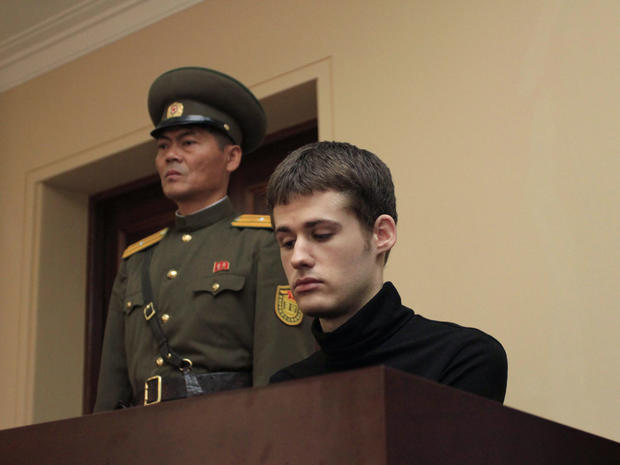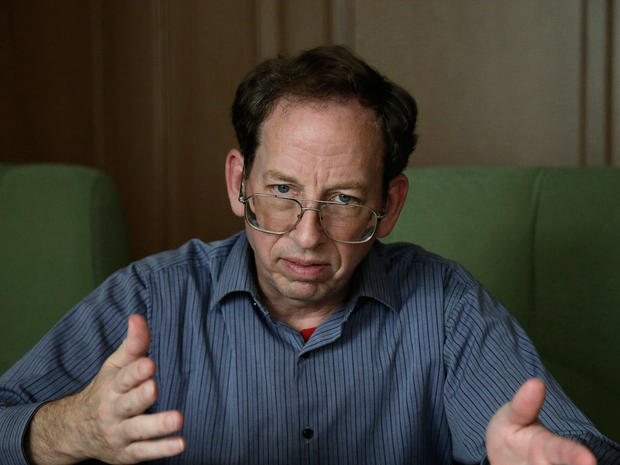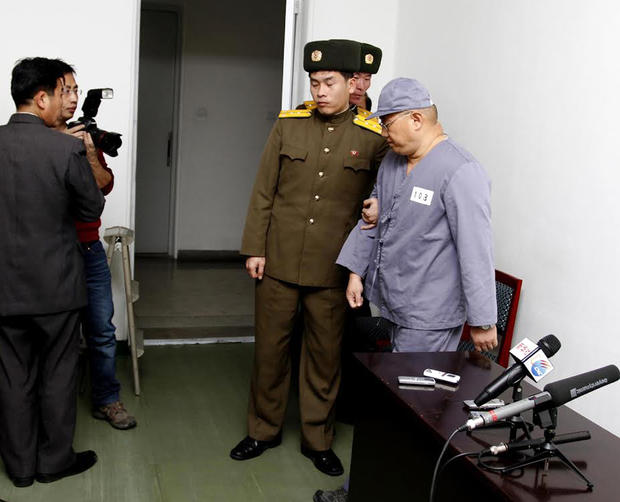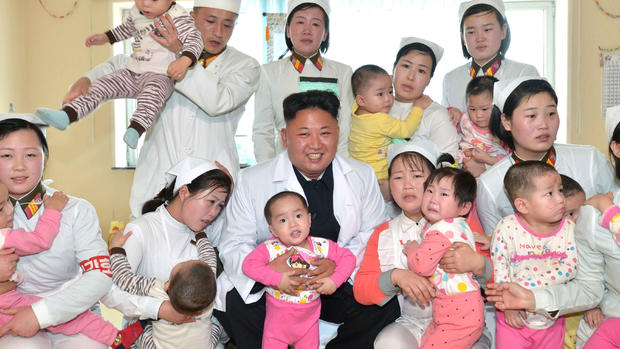North Korea rebuffs U.S. envoy offer to free detained Americans
WASHINGTON -- North Korea is not accepting American offers to send a high-level envoy to seek the release of three detained Americans, a senior U.S. official said Wednesday.
Robert King, the U.S. special envoy for North Korean human rights issues, told The Associated Press that freeing the detainees could provide a diplomatic opening between the nations, also snared by Pyongyang's development of nuclear weapons. But he said Washington would not give into attempts to "extort" political gain from the detentions.
North Korea this week sentenced 24-year-old Matthew Miller of Bakersfield, California, to six years hard labor, deepening U.S. concern over the cases. Miller, who according to the court tore up his visa on arrival in Pyongyang in April, was convicted of entering the country illegally to commit espionage.
Another trial is expected soon for Jeffrey Fowle, of Miamisburg, Ohio, who was arrested in May for leaving a Bible at a sailor's club.
The Obama administration has previously offered to send King, initially to seek a pardon for Kenneth Bae, a Korean-American missionary from Lynwood, Washington, who is serving out a 15-year sentence for alleged "hostile acts." Pyongyang has rejected that.
King would not specify whom the administration was now willing to send. But Scott Snyder, senior fellow for Korea Studies at the Council on Foreign Relations think tank, said he has been told by the administration that it has offered in recent weeks to send Glyn Davies, who leads U.S. diplomacy on North Korea's nuclear weapons program, and Pyongyang has not responded favorably.
North Korea often accuses the U.S. of refusing to talk with it. Davies has not met with North Korean officials since an agreement on a nuclear freeze in exchange for food aid collapsed in the spring of 2012 after the North tested a long-range rocket. Since then, relations have frayed further, with North Korea conducting a nuclear test and objecting strongly to U.S.-South Korean military exercises.
"The issues that are hampering contact are fundamental issues about, in particular, North Korea's nuclear weapons program. But certainly, releasing the American citizens that are held there is an important step that might lead to broader discussions and contacts in other areas. The real question is whether the North Koreans want anything other than trying to create problems," King said.
King criticized North Korea's treatment of the detainees and the way they had been placed in front of the international media for what he said appeared to be staged interviews. Fowle suggested that former Presidents Bill Clinton or George W. Bush could help resolve their cases, and Miller expressed disappointment in the U.S. government.
"By the way they glance frigidly to the side, you can tell somebody has coached them to say this," King said.
He said Sweden, which handles U.S. consular affairs in Pyongyang as the U.S. and North Korea don't have formal diplomatic relations, has not been allowed to see Miller for more than three weeks despite requests to do so.
North Korea could indeed be holding out for a former U.S. president to visit, which would be something of a diplomatic coup for young North Korean leader Kim Jong Un. He has yet to meet a world leader but has faced international condemnation over the nation's human rights abuses and development of weapons of mass destruction.
Clinton went to Pyongyang in 2009 to free a couple of jailed journalists. Former President Jimmy Carter made the trip in 2010 to secure the release of Aijalon Gomes, who had been sentenced to eight years of hard labor for illegally crossing into the country to do missionary work.
King wouldn't be drawn on whether that would be appropriate in these circumstances, but did not rule it out.
"We are not ruling anything out," he said. "These are American citizens. We try our best to do everything we can to aid and assist them when they are in situations like this. And we want to be as supportive and helpful to them and their families as we can be."
Carter on Tuesday criticized what he characterized as a refusal by President Barack Obama to hold direct talks with the North Korean government.
"I think they use these three hostages," Carter said at the Carter Center in Atlanta, "to try to get the United States to talk to them diplomatically."
Carter said he can go to North Korea if he wants to - he's been three times - but in the past, North Korea has required he travel as an official U.S. government representative to bring back an American detainee.
"There's no need for me to go unless I can get a designation from the U.S. government that I'm speaking officially for the U.S. government - which I cannot do," he said. "That's the truth of the matter."



